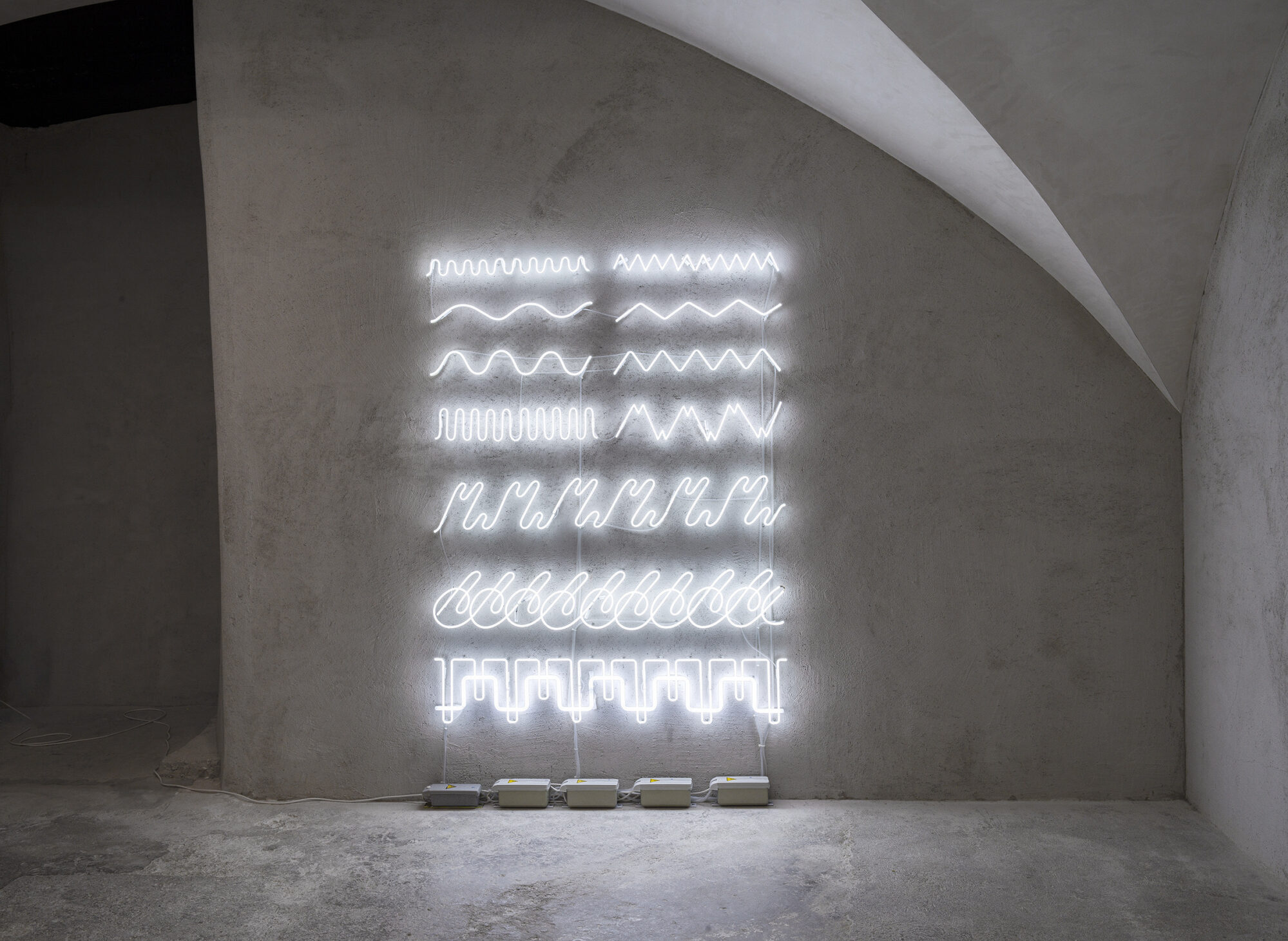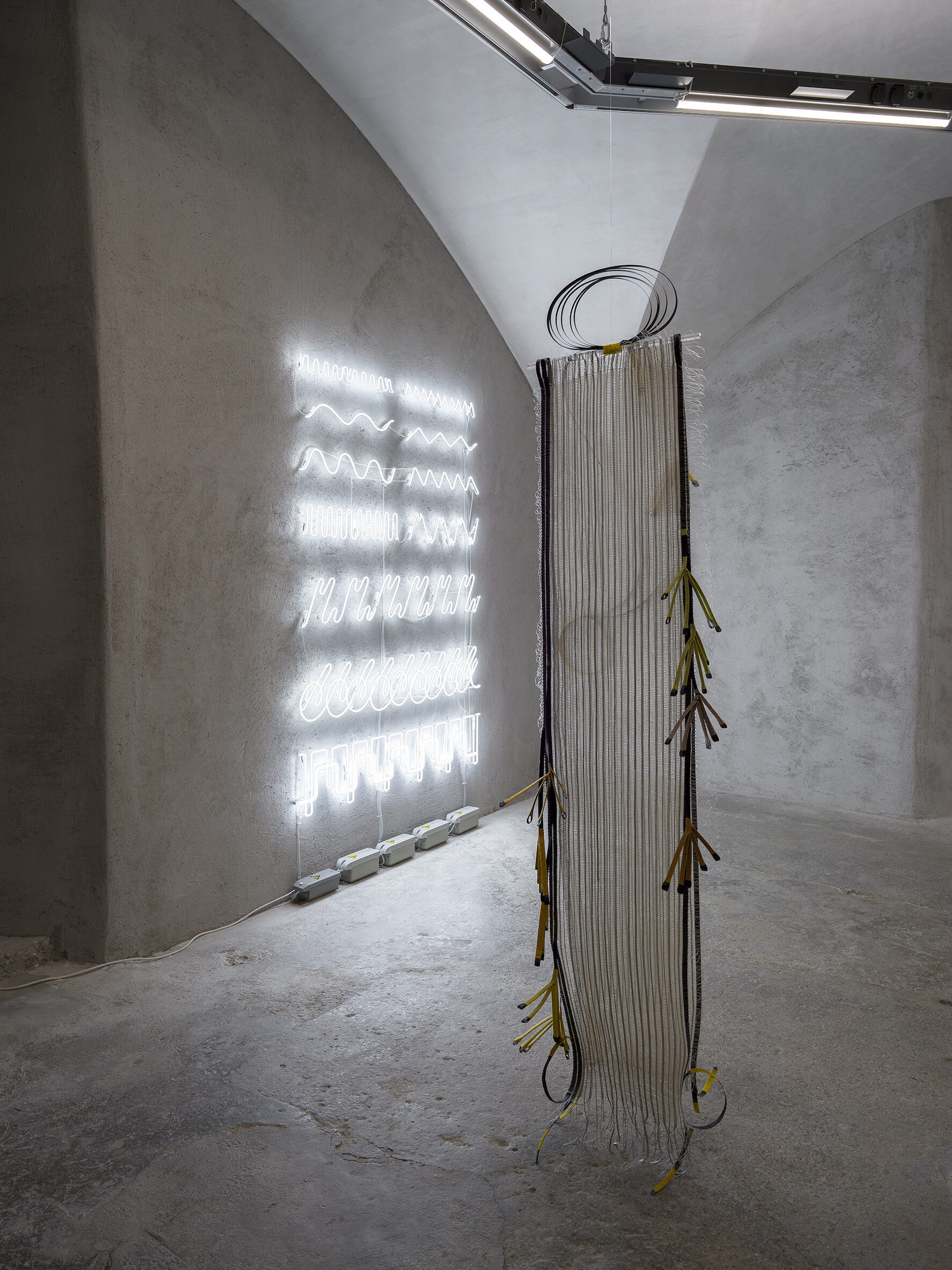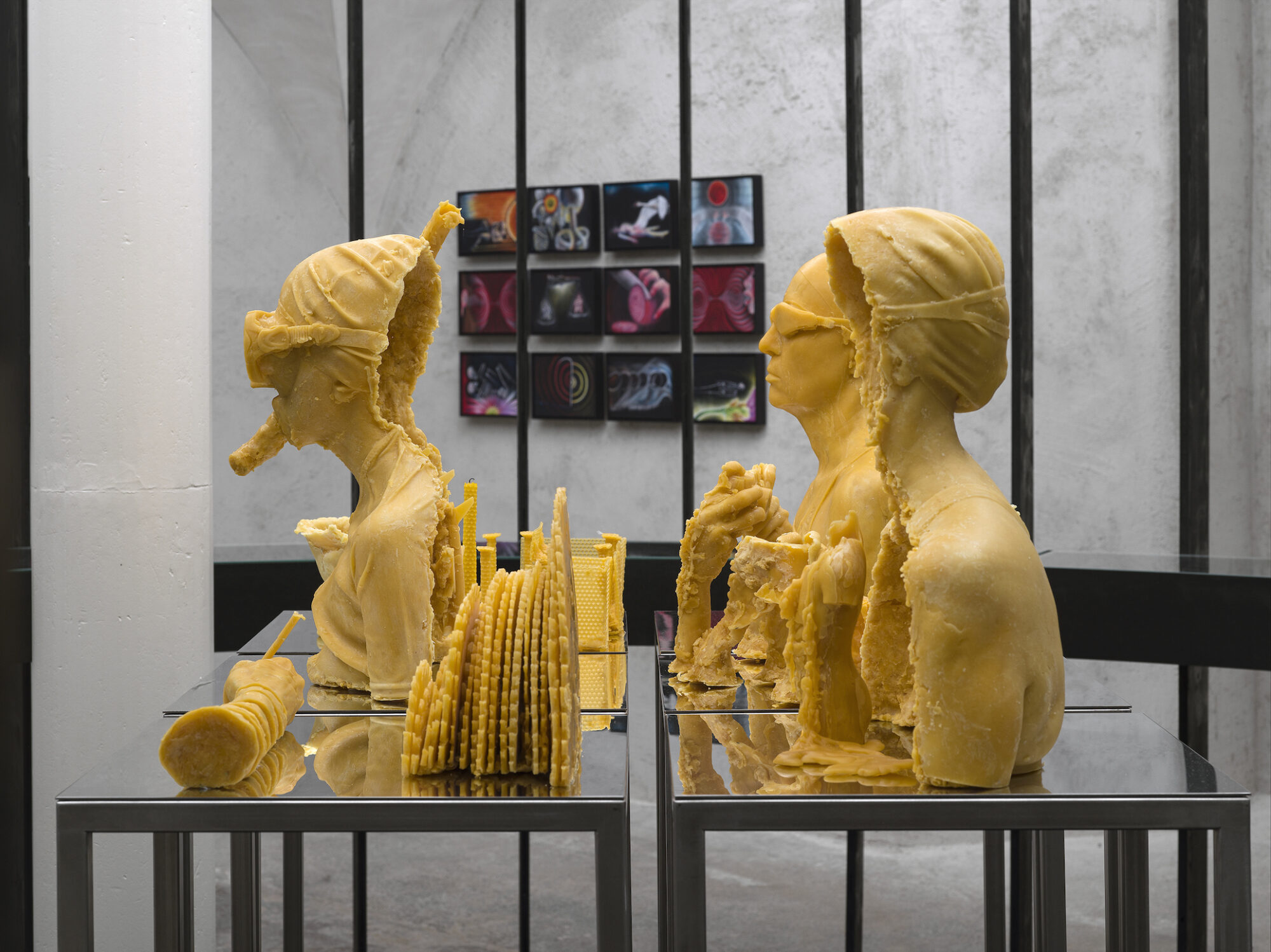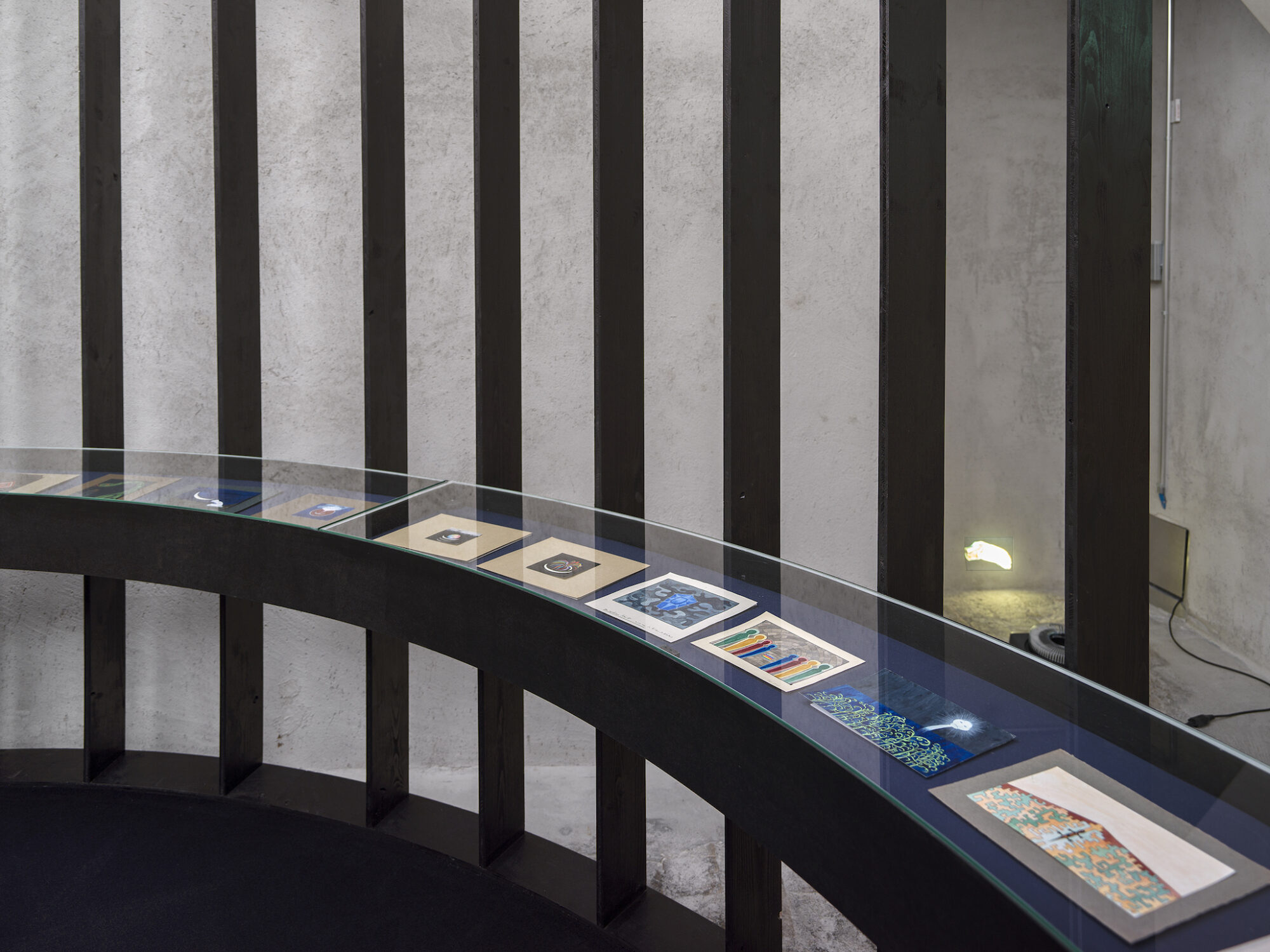
Exhibition view Sophie Taeuber-Arp / Mai-Thu Perret «Ich bin wü ü ü ü ü ü ü ü tend», Mai-Thu Perret, Untitled (for S.T.),2022 and Untitled (Green Oval), 2018, Cabaret Voltaire 2022. Photo: Cedric Mussano
Opening: 13 October, from 18:00
You can find the complete exhibition text here.
Although depicted on the old 50-franc note, Sophie Taeuber-Arp, like so many women in the Dada circle, was long denied recognition. In recent years, much has been done to honor her oeuvre, including the retrospective «Gelebte Abstraktion» [Lived Abstraction], which traveled from Basel (Kunstmuseum) to London (Tate Modern) and New York (MoMa) in 2021. Nevertheless, the artist’s complex oeuvre, shifting between applied, visual, and performing arts, needs to be further explored. Many art-historical and cultural-analytical questions arise that are still topical today: for example, abstraction processes or concepts of artisthood in the context of genre hierarchies, gender attribution, or democracy. Particularly revealing in this regard are Taeuber-Arp’s letters, acquired by the Zentralbibliothek Zürich [Zurich Central Library], which were recently examined in an edition project by Medea Hoch, Walburga Krupp, and Sigrid Schade. Until now, the art-historical reception of Sophie Taeuber-Arp has been based on the memories of Hans Arp and his companions. With the letters, the artist’s «own» view and her system of reference can be reconstructed for the first time.
At Cabaret Voltaire, Sophie Taeuber-Arp’s letters, isolated works (such as a never-before-shown necklace owned by Johanna Lohse), and testimonies of her work as a teacher of textile design at the Kunstgewerbeschule Zürich [Zurich School of Arts and Crafts] enter into dialogue with works by the Geneva-based artist Mai-Thu Perret (*1976). Perret’s multidisciplinary work combines feminist concerns, literary references, and questions about craft with the avant-garde movements of the 20th century. Political as well as formal questions of materiality are in the foreground. Dada and especially Sophie Taeuber-Arp represent an important source of inspiration for Perret. In addition to older works that quote Taeuber-Arp, the exhibition at Cabaret Voltaire shows new works by the artist. Among other things, Perret translates an exercise sheet designed by Taeuber-Arp from lessons for textile professions into a neon work. In this way, the artist transfers a formal language with female connotations as well as patterns from the textile trade into a medium that follows the male-dominated Minimal Art tradition. Following Perret’s genealogical interest in «Fiber Art», the exhibition also features works by Taeuber-Arp’s students, such as Elsi Giauque and Gertrud Sonderegger.
Both Cabaret Voltaire as well as the former Gallery Dada in Zurichs Sprünglihaus must be read as important stations for Sophie Taeuber-Arp. In the Dada House, a discussion arises between the works of women of different generations and regions. Taeuber-Arp’s years in the Dada circle stand at the interface between her apprenticeship years in Eastern Switzerland and her path into the avant-garde, which later led her to Paris, among other places, as a pioneer of abstract art. The exhibition title «Ich bin wü ü ü ü ü ü ü ü tend» [I am ang g g g g g g g ry] is a quotation from a letter Taeuber-Arp wrote to Hans Arp in Arosa on May 4, 1919, in which she expressed her disgust at some of what she saw as gimmicky male Dadaists, who considered themselves to be «radical artists.» The letter gives an additional perspective on Taeuber-Arp and Dada, but in the exhibition «Ich bin wü ü ü ü ü ü ü ü tend» is also representative of the rejection of hierarchies and constricting artistic methods.
The exhibition is supported by:
Pro Helvetia, Kulturförderung Kanton Appenzell Ausserrhoden, Susanne und Martin Knechtli-Kradolfer Stiftung, Steinegg Stiftung, la République et canton de Genève (DCS), Fonds cantonal d’art contemporain (FCAC)












